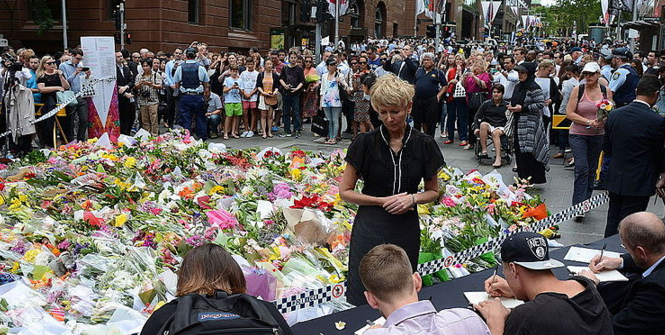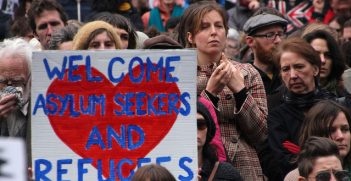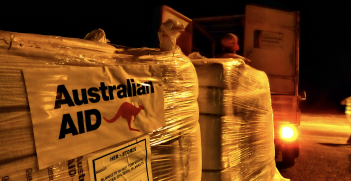Freedom and Terror

A year has passed since the Sydney Martin Place Siege shocked Australia, an event which reminds us that successfully combatting terrorism requires us to be confident of our values and to preserve individual liberty.
Attacks in Paris, Beirut and Sydney have all sharpened the focus of Australians on the threat that terrorism poses. The Martin Place siege highlighted that one of the benefits of the tyranny of distance has ended and we need to be vigilant.
Islamist terrorism is underpinned by misguided ideology and is advanced through shocking violence. But ideas can never be destroyed, they can only be exposed and discredited. An essential part of discrediting a bad idea is having an alternative that enjoys confidence.
In the 800th year of Magna Carta it is important to refocus on the intellectual tradition that our society has inherited. Over that 800 year period Western countries have gone through a long intellectual and political battle about the relationship between the individual and government.
The liberal democratic order that evolved established a system of government for people and societies that respected each individual’s freedom to pursue their life, their opportunity and their enterprise.
The framework of freedom under the rule of law evolved precisely because prioritising the interests of the collective through government squashed individuality and empowered those in positions of authority to squash the freedoms of others.
It should not be junked in pursuit of the aspiration of security that can never be perfectly achieved. Doing so also compromises security.
It is that freedom, pluralism and diversity at which Islamist extremism and terrorism takes aim. That’s why women, mainstream pluralistic Muslims, gays and others are often the target of their most horrific acts.
But Western liberal democracy is only built around an idea. As former US President, Ronald Reagan, often said, ‘freedom is never more than one generation away from extinction’.
One of the great cons of our age is that we have to squash liberty for social cohesion. Social cohesion requires people being free to express themselves.
When liberty is suppressed through denying freedom of speech or association, the intentions of those that wish to express themselves do not go away. Instead it builds up pressure that must be released.
That is the threat to social cohesion. Social cohesion is preserved by allowing pressure valves to be released regularly before any pressure is built up.
In the face of contemporary threats the challenge for governments is how to design laws that properly target national security threats while preserving freedom. It is not straightforward.
Recently a Federal Member of Parliament argued that:
Adapt[ing] our own responses to the global war on terror will require sustained vigilance, agility, and freedom of action for the police and our security and intelligence agencies [and that] we must ensure our police and security agencies have the powers they need to respond effectively to those who hate us and our way of life.
The member concluded that ‘to date, Australia has been at pains to err in favour of the individual. It is now time to err consciously in favour of the vast majority of peace-loving Australians’.
In one sense the member is correct. The paradigm of civil liberties being in conflict with security is not entirely accurate. Security and liberty are not at polar opposite ends of a spectrum.
In many ways security is preserved through the preservation of liberty. It is by ensuring that the law treats everyone equally and justly that we preserve stability and security in society. Doing so will reduce the risk that people feel unjustly targeted and risks validating retaliation against a perceived injustice.
The preservation of liberty also ensures that individuals can hold those in positions of power to account and stops any risk of the abuse of government power.
Many governments are muddling their way through the development of laws as new threats arise. Sometimes they overreach. More safeguards are often needed and there should be regular reviews of efficacy.
Throughout this year we have had a number of significant debates around the preservation of civil liberties.
The debate surrounding the 2 year retention of metadata has formalised an existing mass data collection regime. There were benefits to the law reform (particularly in reducing the number of agencies that could access stored data), but there are also insufficient safeguards such as not tying access to data based on a high-level crime.
Similarly, the passage of the Foreign Fighters Bill has reversed a principle of liberal democracy: that all is legal until it is specifically made illegal. The Foreign Fighters Bill made freedom of movement illegal in some parts of the word, and the government is now prescribing the legal basis that people can roam.
The objective of both laws is clear and broadly meritorious. Intelligence agencies need access to data to pursue crime. And people who go off to foreign wars and commit horrific acts need to be held to account for their crimes. The task is to ensure that these laws have proper safeguards.
Calm and measured consideration of the challenges faced is needed from governments, civil society and individuals alike. Nirvana-esque policy positions do little to advance the discussion. Reasoned and considered responses that take the threats our society faces and the preservation of liberties seriously is necessary.
Each generation faces new challenges and threats. In a hyper-individualised and technological age these threats are taking on new forms. The solutions rest in our past, to preserve the future we want for tomorrow.
Tim Wilson is Australia’s Human Rights Commissioner. This article can be republished under a Creative Commons License.





